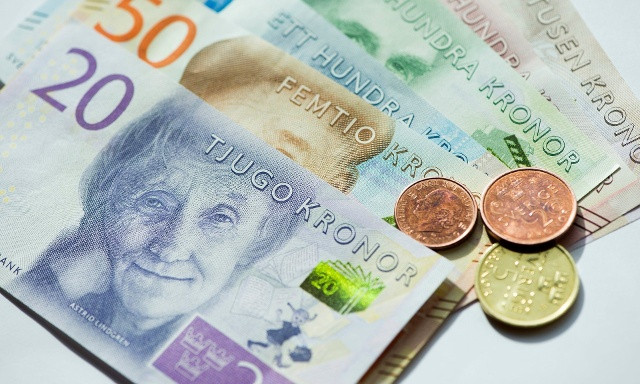Sweden leads the 'cashless' race
(Baonghean.vn) - Sweden is leading the race towards a cashless country as banks, buses, roadside shops and churches here only accept card payments or virtual accounts.
 |
| A shopping mall in Stockholm. Cash accounts for only one-fifth of transactions here. Photo: Guardian. |
In 1661, Stockholm Banco - the predecessor of Sweden's central bank - issued Europe's first paper currency, but now Sweden is striving to become a cashless society, similar to the trend of other Nordic countries.
Buses and public transport in Sweden have been cashless for many years.
The most common means of payment in Sweden today is by card or by phone (via services and apps). Even if you buy something small like a candy bar or a newspaper, very few shops here accept cash.
According to central bank Riskbank, cash transactions accounted for just 2% of payments in Sweden last year, and this is expected to fall to 0.5% by 2020. In stores, cash accounts for 20% of transaction volume, compared to the global average of 75%. Clearly, Sweden is far ahead of other countries in the process of eliminating cash.
Currently, 900 of Sweden's 1,600 bank branches do not hold or accept cash deposits. ATMs are virtually nonexistent. According to Professor Nicklas Arvidsson, an expert on innovative payment systems at the Royal Institute of Technology in Stockholm, Sweden will be a cashless country in about five years.
Sweden began its cashless transition in the 1960s, when banks convinced employers and employees to receive their salaries via bank transfer. Then in 1990, Swedish banks began charging fees on checks, paving the way for the rapid growth of credit and debit cards.
 |
| Banknotes and coins in Sweden have gradually fallen into oblivion. Photo: Guardian. |
Cards are the main form of payment in Sweden, with card transactions three times the European average. Mobile payment apps are also growing, with many banks allowing users to use smartphone apps to authenticate transfers from their accounts.
The most popular app today is Swish, used by nearly half of Sweden's population, with more than 9 million transactions per month.
Going cashless in Sweden is a huge step forward in making payments more convenient and safer. The security eliminates the fear of theft. However, it has also created a problem of fraud, with electronic fraud doubling in the past decade. Sweden is still working on the security of its electronic payment system and moving towards a 100% cashless society.
Quan Le
(According to Guardian)
